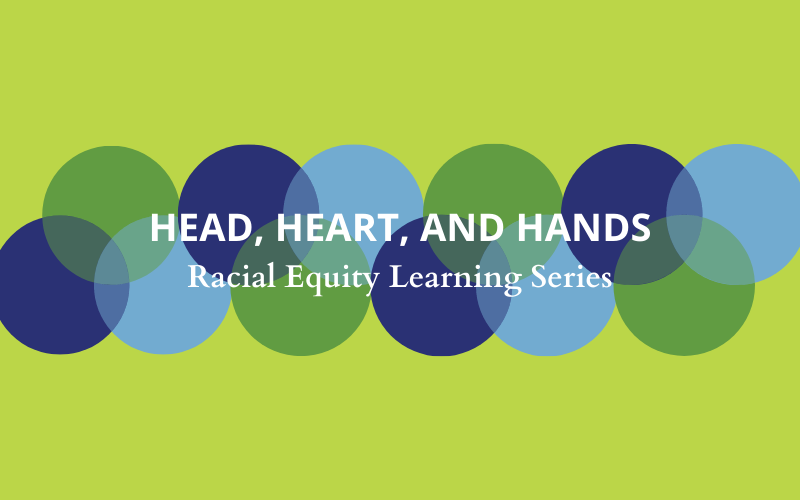Over the past five weeks, we have had the opportunity to connect with other members and think deeply about the relationship between racial equity and our work as a primarily white collective giving circle in a series of open and thoughtful conversations. We are grateful to everyone who participated in this learning series and to facilitators Brianna Boggs and Cheryl Harris for sharing their wisdom and experience with us.
Session 1 opened with a powerful argument for the importance of knowing the “why” behind your work before moving on to examine data on racial disparities, including the funding gap between Black-led and white-led organizations. (Watch the video below for a great demonstration of the value of knowing your “why.”) The ensuing discussion focused on how implicit bias contributes to structural inequity and how the ladder of inference can help us understand how implicit bias operates and how we can interrupt this process.
Session 2 focused on adaptive leadership as a framework for approaching challenges–such as defining what it means to support racial equity–that have no ready answers, challenge deeply held beliefs, and raise competing, legitimate perspectives. Solving adaptive problems requires learning and innovation among many stakeholders, an approach that fits naturally with our member-driven ethos. In breakout sessions, members dove into this process of learning and innovation by discussing disparities in philanthropy and how funders like Many Hands can alter their practices to diminish them.
Session 3 introduced liberatory consciousness as a model for thinking about how we move from awareness through analysis to action and accountability/allyship and where we may get stuck. The discussion also challenged us to reexamine the stories we tell ourselves about the actions we take (e.g., choosing grantees) as a way of imagining solutions to adaptive challenges. By examining the data we used to support our initial conclusions, asking what data we left out, and using that data to build new interpretations, we may find ourselves propelled in new directions.
Brief introductions to each of these frameworks, as well as background information on structural racism, implicit bias, and racial equity and philanthropy, can be found in this consolidated resource list.
We hope these tools will help us reexamine our grantmaking and organizational practices, both as participants in Focus Area Committees (FACs), Impact Grant voting, and other Many Hands activities, and institutionally. We also hope the robust discussions that have taken place among members will continue. Members are invited to share your ideas for keeping this work moving forward by emailing Mary Kwak at president@manyhandsdc.org. We hope to hear from you, whether or not you participated in the learning series. It’s never too late to get involved!


